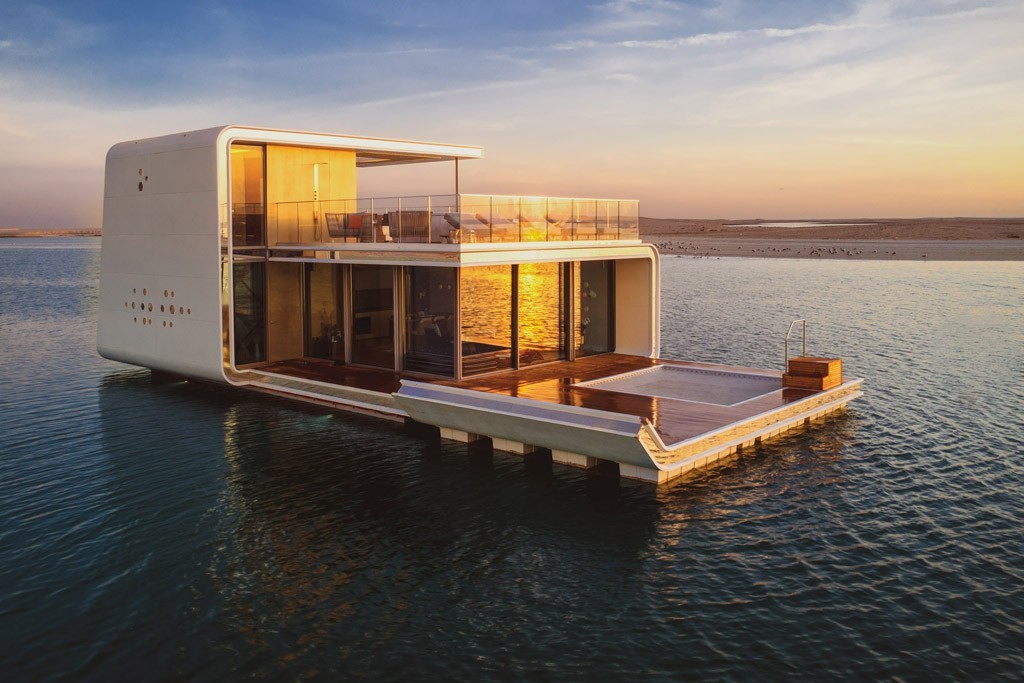
Sea-docked, three-storey luxury mansions—floating villas—where luxury and seas go hand in hand. They glide silently along the coastline, sea always and maximum sense of seascape experience Three-Storey Building Submerged Floor: The most stunning room—bedrooms (and sometimes bathrooms) half-submerged with floor-to-ceiling glass doors opening to high-end seascapes and coral garden landscapes. Sea Level Living Space: From living space, dining and kitchen space — all the way down to this floor level, with ocean view floor-to-ceiling — glass walls Roof Top / Upper Deck: Patio, sun deck, and recreation room—a private Jacuzzi or infinity pool, with patio and dining outside there High-End Finishes & Smart Technology Seawater-quality material. Weather-resistant house as a measure to resist salty weather. Smart homes power light, temperature, and security comfortably automatically.Unacceptable not for sustainability by solar panels on roofs and onboard water purifiers Glass facades ensure penetration of light to maximum and seaview immersion. Eco Aware & Ocean Friendly Floating villas are designed with sustainability in mind, using eco-friendly materials and incorporating energy-efficient systems. Many feature artificial coral reefs to support marine life and help preserve the underwater ecosystem. These villas aim to minimize environmental impact while offering a luxurious living experience close to nature. Prestigious Locations Most floating villas are sited within Dubai’s World Islands (e.g., The Heart of Europe project). Others like Kempinski Floating Palace also have villas above the Arabian Gulf. The villas are tastefully done and not ostentatious with downtown Dubai, Palm Jumeirah, Dubai Marina, and tranquil beaches in reach. Unmatched Luxury & Lifestyle Amenities Floating villas are filled with luxury features: Private Jacuzzis/pools above sun decks. 24/7 Concierge-level service. Travelling villas’ crew facilities (captain, stewards, deckhands). Bentley-inspired furniture and luxury upholstery in superior finishes in some models. Investment Appeal Floating villas are highly investable with limited numbers available, high demand, and high luxury with high demand from high-net-worth individuals. Rare to find and available in limited quantities, their high capital appreciation is guaranteed and also they have high rental yield where there is good tourism like Dubai. Short-term rental yield and long-term value appreciation come under the purview of the investor, and floating villas are thus a luxury high-end real estate asset class. Headed Projects Identified The Floating Seahorse (Heart of Europe) Heart of Europe is sea level rooftop luxury villa three-stories high, underwater bedrooms, and sea level roof deck luxury villa. It features just breathtaking ocean views, luxurious private homes, and eco-corral gardens. Kempinski Floating Palace – Neptune Series 48 floating villas (2–4 beds), up to ~10,400 sq ft on roof and two floors. Itz private pools, jet ski decks, green engines (cruise 6–8 knots; top 12), and full onboard crew overnight rates AED 50k high season; AED 29m to AED 46m C. Other Concepts Sea Palace by Seagate Yacht builders features palace floating residences with rooftop swimming pools and sea included tech Dubai floating resorts is a Maldives copycat concept, hybrid residential hospitality models Dubai Marasi canal floating villas has private marina entrance Things You Need to Know “Dreamliner High Maintenance: Saltwater exposures are the type that are special material and maintenance-needing, are likely cost-than-average assets Access Restraints: Boat shipping or yachting, as contrasted with automobile shipping, is likely the mode of shipping that floating villas utilize Regulatory & Ownership Laws: Dubai Land Department, freehold/leasehold legislations, zoning law, permits, coastal and safety law, etc. Legal & Environmental Regulation Structural queries, zoning, and permit are asked by the environmental studies and regulators Add EIA and restoration methods such as coral reef structures and eco materials to it What’s Next: Looking Ahead Self-driving & energy positive houseboats: AI self-driving capability must be one of the key reasons towards future architecture with green energy tech Smart house integration: Greater use of AI in complete climate, security, and entertainment systems Global acceptance: Dubai may be leading the way currently, but floating villa ideas will permeate other high-end coastside resort regions A Glimpse of What the Tomorrows Have Planned for the Coast Floating homes are not luxury status symbols of high-end exclusivity alone—water house living is the tidal wave of home living. With megacities across the world from Dubai at the forefront of underwater and floating house innovation and research, water house living redefines ocean dwelling for the twenty-first century. Floating homes are then the demand for even more seclusion and privacy and green luxury takes over. It is what makes the floating villas so and separate from the rest that they are moorable. There are likewise other mobile ones and others moorable to other beachfront residences, literally so perfect for the whim-seeker, sea-explorer’s life. These villas are highly space-conscious on the ground and experiential and not your run-of-the-mill beachfront residences. Other than the nature-nesting aspect of floating villas, they are also green. They have solar panels, recycling units, and coral reef nursery decks which the developers included in their mission to help maintain the sea eco-system intact. Other than reducing the footprint on the environment, it increases the value of the property in the long term. Where luxury tourism and smart buildings intersect and there are floating villas, there is the luxury solution – floating villas. Where sustainable smart buildings, luxury tourism, and sustainability converge, floating villas are now ultra-high-net-worth individuals’ dream house and lifestyle status home by home. Floating Villas as Lifestyle Status Symbols Floating villa is not an investment property at all—it’s high end living. The villas are located in luxury gated communities like Dubai World Islands so that they are fully anonymous and enjoy maximum status. The owners can avail themselves of the amenities of hotel-like establishments like in-villa chefs, concierge, and water taxi pick-and-drop so that they can live in resort-class luxury from home. Conclusion First-time home buyer, second-home weekend holiday home, luxury water holiday home rental investment property – floating villas is something one can choose who craves something new and peaceful. Their cutting-edge design, seaview panoramic view, and unparalleled amenities make a humongous vote of confidence in the direction of luxury, modern water
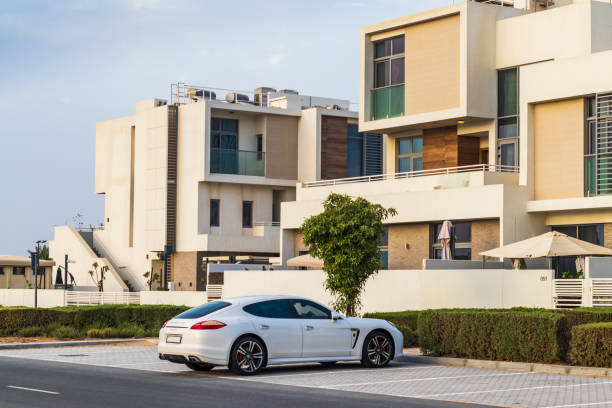
Dubai is a memorable city. It is known for its tall buildings.They want big, beautiful homes. These homes are called ultra rich mansions. In 2025 the market for these homes is very strong. If you are looking for such a home, here are the best places to look. Why Buy a Mansion in Dubai? Dubai is a great place to live. It has no income tax. The weather is sunny almost all year. It is a very safe city. There are many job opportunities. The schools are good. There are world-class hospitals. Dubai is also a global business hub. Many rich people from all over the world come here. They want to buy a piece of this luxurious city. The property market in Dubai is growing. Prices for luxury homes have gone up. This is because more people want to buy them. There is a limited number of these special homes. So, if you buy now, your home’s value might go up in the future. Top Areas for Ultra-Luxury Mansions Let us look at the best places to find these amazing homes. 1. Palm Jumeirah It is man made. This island is a symbol of luxury. It has beautiful beachfront villas. Many of these villas have private beaches. You can wake up and see the ocean every day. You can find Signature Villas and Garden Homes. These homes are very big. They have many bedrooms. They often have private pools. They offer stunning views of the Arabian Gulf. Some homes here can cost tens of millions of AED. Some can even go above AED 100 million. These are often in famous buildings. For example, the Atlantis The Royal Residences and W Residences. These places offer hotel services. You can get room service or a private chef. 2. Emirates Hills Emirates Hills is another top spot. It is called the Beverly Hills of Dubai. This area is very exclusive. It has huge mansions. These homes are often custom-built. They are on large plots of land. Many homes here have golf course views. This means it is very safe. It has beautiful green areas. It is close to golf clubs and other luxury facilities. Mansions in Emirates Hills are among the most expensive. They can be found for AED 70 million or more. Some even reach over AED 100 million. 3. Jumeirah Bay Island Jumeirah Bay Island is a newer area. It is becoming very popular for luxury homes. It is a seahorse shaped island. It provides beautiful views of the city skyline and the sea. It has very fancy apartments and mansions. These homes offer a resort-like lifestyle. You can enjoy high-end dining. There are spas and private beaches. Homes here blend Italian design with Arabic style. They offer true exclusivity. A mansion like a private cinema or a vast swimming pool. Prices can be very high and reflect the location and amenities. 4. Dubai Hills Estate Dubai Hills Estate is a large and master planned community. It is known for its green spaces. This area is good for families. It offers large villas and mansions. Many homes have golf course views or park views. Dubai Hills Estate is well connected to the city. It also has good schools and healthcare. The villas here are spacious. They offer modern designs. Prices for villas in Dubai Hills property can be around AED 10 million and go much for bigger mansions and sometimes over AED 100 million. It is a good place for long term value. 5. Al Barari Al Barari is a unique community. It has amazing gardens and waterways.The homes here are planned to be close to nature. They are very private. Al Barari offers large, luxury villas and estates. These homes are often very modern.If you want a quiet place to live, Al Barari is a good option.It concentrates on wellness and endurable living. 6. Mohammed Bin Rashid City (MBR City) MBR City is a huge development. It is near Downtown Dubai. It has many different projects. Many of these are very rich. For example District One offers ultra rich villas and mansions. They offer beach-like living in the city. MBR City aims to be a city. It will have a park for shopping and entertainment. It is a great option for those who want a blend of city life and the richest. New plots are coming up in this area. What to Expect in 2025 The real property market in Dubai is very strong in 2025. Here are some trends: Off-plan properties: Many new luxury projects are being built. Buying “off-plan” means buying before construction is finished. This can offer good value. Branded residences: Homes linked to richest brands are popular. They provide high end services and unique designs. Smart homes: New mansions still come with smart technology. You can control lights or temperature and security with your phone. Sustainability: many richest homes are built with eco-friendly features. This involves energy saving designs and water efficiency. High demand: more luxury people want to live in Dubai. This keeps the prices for luxury homes very high. How to Find Your Dream Mansion Finding an ultra mansion needs help from an adept. You should work with a trusted real property agent. They know the market well and well. They can still help with the buying process. Look for agents who specialize in richest properties. Many luxury real estate websites list these homes. You can browse online. But for the best homes, a direct connection with an agent is often needed. Conclusion Dubai provides a few of the world’s most beautiful mansions for sale in 2025. Places similar to Palm Jumeirah or Emirates Hills and Jumeirah Bay Island show the way. These homes provide the richest and a great lifestyle. The market is strong, with new and exciting projects always appearing. If you are looking for an ultra richest house Dubai is a top choice.

Are you looking to buy property in Dubai? This city is a hub for many people. It offers great opportunities. But buying a home is a big step. You want your new home to bring you good luck. You want it to bring you peace. This is where Feng Shui can help. Feng Shui is an old Chinese practice. It helps you arrange spaces. It aims to create harmony. It balances energy, called “Chi.” This guide will give you simple Feng Shui tips. These tips are for buying property in Dubai. They are for expats and investors. What is Feng Shui? It is about how energy flows. This energy affects your life. Good Feng Shui brings good things. It brings health, wealth, and happiness. Bad Feng Shui can cause problems. By following some rules, you can create a positive space. This is true even in a busy city like Dubai. Why is Feng Shui Important for Property? It is more than just bricks and mortar. It’s where you will live. It’s where you will feel safe. It’s where your family will grow. For investors, a property with good Feng Shui can be more attractive. It can even sell faster. Many Indian and Chinese buyers look for these homes. They believe in the power of good energy. Key Feng Shui Tips for Your Dubai Property Here are some easy Feng Shui tips. Use them when you are looking for property in Dubai. Check the Property’s History This is important. Learn why the previous owners are moving. Were they happy? Did they get a promotion? Did their family grow? If they moved for happy reasons, it is a good sign. It suggests good energy. Avoid properties where owners faced problems. This could be divorce or financial trouble. Such homes might carry negative energy. Look at the Location The location of your property matters a lot. You should avoid a home at the end of a “T” intersection. Too much energy rushes towards it. This can be too strong. It is not good for calm. Homes at the end of a cul-de-sac can also have issues. The energy can become stuck there. It might not flow well. Also, homes near power lines or electrical towers are not ideal. These towers can disturb the “Chi.” They create strong, negative energy fields. Water nearby can be good. Water represents money and abundance. A home facing a river or a lake is good. But the water must flow towards the house. If it flows away, your money might also flow away. Fountains that flow into the property are excellent. Stagnant water, however, is bad. Focus on the Front Door and Entrance The front door is very important. It is called the “mouth of Chi.” This is where good energy enters your home. Make sure the path to your front door is clear. It should be welcoming. A curved path to the door is better than a straight one. It helps energy flow gently. Nothing should block the front door.This so There should be no sharp objects pointing at it. Make sure the doorbell works, but a working doorbell helps attract good things. Add bright flowers or plants near the entrance. This attracts positive energy. Manage Energy Flow Inside Once energy enters, it needs to flow well. If the front door faces the back door, money can “run away.” This means wealth leaves easily. You can fix this. Place a beautiful rug in the entry. A small table with fresh flowers can also help. A crystal chandelier or plants near stairs can also break up this fast energy flow. Keep your home tidy. Clutter blocks energy. It can make you feel stuck. A clean and organized home allows Chi to move freely. In the bedroom, place your bed against a solid wall. This gives you a feeling of security. Avoid blocking windows. Natural light and fresh air are vital for good Chi. Use Colors and Elements Wisely Colors and natural elements have strong effects in Feng Shui. Green is a color that means money and growth. You can add green plants to your home. Plants bring life and clean the air. However, avoid plants in the bedroom. Red is another color that means good luck and abundance. You can add small red items. A small red bag filled with coins is lucky. They can create stress. Feng Shui also uses elements. Wood or Metal and Water etc. Each one has a role. Wood is for growth and new ideas; you can use plants or wooden furniture. Fire is for energy and passion, using candles or red items. Water is for flow and money, found in mirrors, fountains, or blue and black colors. Balancing these elements creates harmony in your space. Consider Natural Light and Air Good light and fresh air are key for positive energy. Choose properties with plenty of natural light. Keep windows clean. This lets fresh energy come in. Open windows regularly. Let fresh air circulate through your home. Pay Attention to Your Intentions Feng Shui is not just about physical things. Your thoughts also matter. If you focus only on making money, results might be poor. Instead, focus on creating a supportive home. Think about serving your family and community. Positive intentions make Feng Shui more powerful. Feng Shui in Dubai’s Property Market Dubai is the real estate market. Many buyers, mainly from India and China, seek Feng Shui compliant homes. Developers are starting to notice this demand. While not every property is built with Feng Shui in mind so you can make adjustments. Conclusion Buying a property in Dubai is a dramatic journey. It will support your health, wealth, and happiness. Remember to look at the location, the entrance, and how energy flows. Use colors and natural elements wisely. And always keep a positive intention. With these simple steps, you can find your lucky dream home in Dubai.
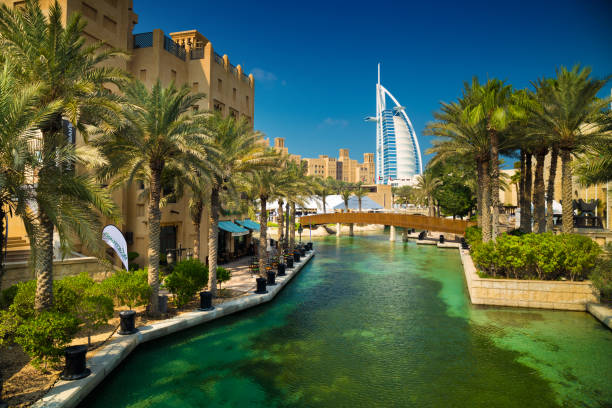
Dreaming of a new life in Dubai? Many Americans are. Dubai offers a great lifestyle. It has sunny weather, a growing economy, and a tax-free income. We will make it simple and easy to understand. Why Dubai? Dubai is a memorable city. It is a hub for business and tourism. It has low crime rates. There is no income tax in Dubai. Dubai also has a good healthcare system. There are world-class hospitals. The real estate market in Dubai is strong. It keeps growing. Many people from all over the world buy property here. Property prices have been going up. This means your property might be worth more in the future. Can Americans Buy Property in Dubai? Yes, absolutely! As a US citizen, you can buy property in Dubai. You do not need to be a resident to buy. There are special areas for foreign ownership. These are called “freehold” areas. Some popular freehold areas are: Dubai Marina City centre Friends and family. Business Bay These areas are well-known. They have good facilities. They are popular with expats. Understanding Property Types When you buy property in Dubai, you have choices. Freehold Property: This means you own the land and the building. You have full ownership. Most US buyers prefer this. Leasehold Property: This means you lease the property for a long time. It can be 10 to 99 years. You do not own the land. This can be cheaper upfront. The Buying Process: Step-by-Step Buying an estate in Dubai is easy if you know the steps. Step 1: Research and Plan First you will think about what you want. Do you want a home to live in? Or a property to rent out? How much money do you want to spend But talking to local experts is better. Step 2: Get Help from a Real Estate Agent This is very important. Work with a real estate agent. Make sure they are licensed by RERA. RERA is the Real Estate Regulatory Agency in Dubai They will help you with prices. They can also explain the local laws. Step 3: Find Your Property Your agent will show you different homes. Visit them. Ask many questions. Check the condition of the property. Once you like a property, make an offer. Step 4: Agree on Terms and Sign the MOU When your offer is accepted, you will sign a document. It is called a Memorandum of Understanding (MOU). This is a legal agreement. It lists all the details of the sale. Both you and the seller sign it. You will also pay a deposit. Step 5: Get a No Objection Certificate (NOC) Next you will need a No Objection Certificate (NOC). This is from the property developer. It says there are no unpaid bills or issues with the property. Your agent will help you get this. Both you and the seller go to the developer’s office. You pay a fee for the NOC. Step 6: Transfer Ownership at the Dubai Land Department (DLD) This is the final step. You go to the DLD office. This is where you officially become the owner. You need to bring your passport and a manager’s check.. They will give you the title deed. This is proof of your ownership. Costs and Fees to Expect When buying property, there are extra costs. Dubai Land Department (DLD) Transfer Fees: This is 4% of the property value. Sometimes, the buyer pays 2% and the seller pays 2%. Brokerage Fees: This is what you pay your real estate agent. It is usually 2% of the property value. Property Registration Fees: This is around AED 4,000 for properties over AED 500,000. NOC Fee: This fee goes to the developer. It can range from AED 500 to a few thousand. Mortgage Registration Fees: If you get a mortgage, this is 0.25% of your loan amount. Financing Your Property You can pay cash for your property. Many foreign buyers do this. You can also get a mortgage. UAE banks offer mortgages to non-residents. You will need a bigger down payment. It is usually 25% or more. In the US, it might be less. Banks will ask for many documents. Be ready to show proof of your income. They will check your credit. Start the mortgage process early. It can take time. Cost of Living in Dubai Many people wonder about the cost of living. Dubai can be expensive in some ways. But overall, it can be cheaper than many big US cities. Rent: If you choose to rent first, expect high costs in prime areas. But there are more affordable options. Utilities: Electricity and water bills are typically lower than in the US. Groceries: Food costs can be smaller than in the US. Transportation: Fuel is cheaper. Public transport is good and affordable. Salaries: While there’s no income tax, average salaries might be lower than in the US. Even so, keeping your huge salary still balances this out. Important Things to Remember Visa: Buying property does not impulsively give you a residency visa. Even if you invest sufficient money in property (AED 750,000 or more). For a huge investment (AED 2 million+) and you can get a 10 year Golden Visa. Legal Advice: It is a great idea to get a lawyer. They can check all legal documents. This will protect your interests. Due Diligence: usually check the property and developer carefully. Make sure there are no problems. Cultural Differences: Dubai has a strange culture. Learn about local customs. This will help you settle in. Dubai’s Property Market Today (2025) This is due to more people moving to Dubai. Many foreign investors are interested. There are new developments at any place.These areas provide more space and quiet. Conclusion Moving from the US to Dubai and buying an estate is a big step. But it can be a good one. Dubai provides an amazing lifestyle and good investment option.

Saving a lot of time to get your loan of home approved in UAE is possible through planning and with organizing the work. Provided with proper strategy, you will be able to make the process faster without any possible unnecessary delays. The following are some of the tips that you could use in order to get your mortgage easily. Learn about Economic Condition You need to review your total financial position before you start applying a home loan. Keep a review of your income, monthly expenditure and any members of debt. When you have a low ratio of debt to income, then you have an improved chance of securing loan approval. Ensure that your revenue is stable and attempt to decrease debts. Your loan providers will look into your financial patterns and provide a good stable financial picture. By preparing your finances in advance, you will know how much money you can borrow and prevent setting back or turn-downs later on, in the application process. Credit Rating should be Good The credit score is instrumental to the rate at which your loan is approved. Good score makes you trustworthy to the banks. Get in touch with your credit report at least once per month Clearing unpaid bills of credit cards Keep away from delayed payments In case you do not have a good credit background, then spend a couple of months and make it good before you apply. Select The Correct Lender Various banks and financial institutions quotations are different in terms and interest rates. Conduct a thorough researches in order to identify a lender that suits you. Compare rates of interest Consider tenure on loans and processing fees Review customer evaluation and ranking of service Choosing an appropriate lender will eliminate the burden of documents and accelerate the procedure. Get Pre-Approval It demonstrates lending institutions have considered your financial characteristic and are ready to provide a specific amount of loan. This does not only save time but also helps you gain credibility with the sellers. Pre-approval will enable you to make a realistic budget and not make unwanted delays. It also makes you confident in negotiating and reduces the time taken to secure the loans in the future. Maintain a Good Work History Providing a buyer has a steady job-history, preferably in the same job, or industry, over a period of two years, lenders will favor them. Stability reveals financial stability and reduces the chances of default. It can give rise to concerns when either you have changed your job very often or have employment gaps. Stable income will give comfort to the lenders that you will be able to fulfil the monthly payments on the mortgage, hence your increased chances of being accepted to take a home loan. The Down Payment Excepted It is important to make sure that one has the substantial down payment in place when seeking a home loan. It exhibits financial conservativeness and diminishes risk to the lender. Larger down payment also has the advantage of reducing your loan-to-value ratio, which will help you to have cheaper interest rates. Have a goal of saving at least a twenty percent of the value of the property so that you can have a good opportunity of getting a loan approved of you without facing any extra costs such as a private mortgage insurance. Order all the necessary documents Loan delays mainly occur due to incomplete paper work. All the documents should be prepared in advance: Copy of passport and visas page Emirates ID Salary certificate or trade license (in case of self-employed) Bank statements (the past 6 months) Down payment evidence Having these documents in place will make the bank handle your loan very quickly. Pay Offstanding Liabilities It is prudent that one clears all repayments of existing debts like credit cards, personal loans or car loans before taking a home loan. Paying off your debts lowers your debt-to-income ratio, which is considered one of the important aspects that lenders consider when they lend money to people. This ratio reflects that your financial health is good and the lower it is the more you will be able to borrow money. This also improves your credit score thus making you a better and more appealing borrower to lenders. Avoid Applying in Different Banks It might appear as a great idea to send many applications to many banks simultaneously, although this can only damage your credit score. Too many loan inquiries in a short time raise red flags Focus on one or two trusted banks Wait for a decision before approaching others Targeted applications increase your chances of quick approval. Consult the Mortgage Consultants In case you do not know how to do it, you may take a mortgage consultant. They can: Assist you to select the best offers of the banks Help to fill out forms and qualification Impose your negotiating on your behalf on the terms They will be of great help in dealing with tricky loan requirements. Become Open and Direct It is necessary to be open and candid in the process of taking home loans. Be honest and truthful in the financial aspect of your application such as income earned, debts owed and employment status. Lenders thoroughly check documents and in case of not meeting documents one can just be rejected. The misrepresentation of information can mar your credibility and cause delay in approval. Being open and trying to build trust with the lender will give you a better advantage of an easy loan process as well as successful mortgage approval. Follow up the Market situation Depending on the state of the economy, the interest rates and the policies that banks apply to lending are quite likely to vary. Keep abreast of the current trends. Use it when the interest rates are low Select the fixed or variable rates depending on the market Appreciate offers or promotions by the bank This will allow
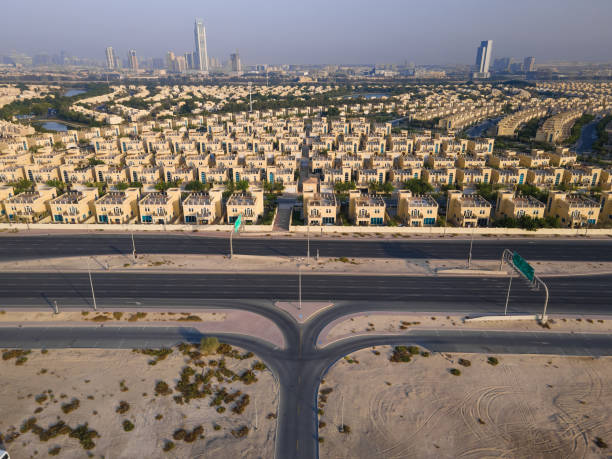
Purchase of an off-plan property, that is an apartment that is still being built can be a profitable investment. The resale value after the completion of the project however is one of the greatest concerns the buyers have. Although off-plan investments have catchy prices and convenient payment terms, it is important to weigh in whether your investment will have decent returns in the future. The following will give you an idea of what to expect in terms of resale should the offense turn out to be an off-plan property. It Is Where Location Counts Most important determinant of future value of property is a property location. A property with ideal location will never lack customers. Any closeness to main roads, business centers, schools, shopping areas etc makes it desirable in resale value. Neighborhoods, which have future infrastructure construction (e.g. metro stations, additional roads), can be expected to show enhancement in value. Count the crime rate, development of the community and general requirement of housing in that site. Hint: capital appreciation tends to be more in the future-oriented developments. Developer Image A track record and credibility of the real estate developer is very crucial in the success and future value of an off-plan property. Check on previous projects: Were they on-time? Evaluate the level of construction, standards of design and the completion level of the project. More buyers tend to be attracted to developers who have a good image when it comes to selling them later. Good-established developers can cause greater sense of reassurance in would-be resalers. Market Trends and Demand It is necessary to realize the trends in the property market in the region. Examine trends in present and future price levels in the community. Good resale value may also be signified by high demand of the rental houses. Keep an eye on the off-plan vs. property readiness pricing on similar localities. Follow the trend of real estate market cycles and choose the period when the growth is expected. Buyer interest and Payment Plans The option of flexible payments helps attract more customers, an aspect that can indirectly increase the resale prospect. The financing mechanisms such as 60/40 or post-handed-over payments schemes build the possibility of accessing the property. Enquire about similar units in the development whether they have already been sold- this will show confidence among buyers. The off-plan project that becomes more attractive to investors should have investor-friendly payment terms in order to create more interest in secondary markets. Amenities and Design Project Contemporary as well as well-planned communities have higher resale value. The consumers are in search of lifestyle rather than a place to live. Gated communities, security, gyms, pools and green areas are very appealing. Value is added through smart home functions, green architecture and green building. Homes that are equipped with superior amenities are in a position to command higher premium resale. Time Schedule and Risk Less time taken with the process of delivery minimizes the uncertainty by the investor and assists in faster resale. Projects that are likely to be delivered in less than 1-2 years are desirable than those with wide delivery horizons. The buyer confidence and resale potential can be reduced as a result of delay in construction. Determine whether or not the developer is famous with timely delivery. Beautiful and consistent construction schedule is another feature that makes the property attractive. The Area Supply There can be excessive supply of properties so as to inhibit the resale value due to excessive competition. Investigate the number of the other units under construction within the same community or region. Find out if there is an influx of properties with a similar type. Even in good locations a drop in resale prices will be possible due to low demand and high supply scenario. Legal and Regulatory Factor Acquisition of registered and approved project assists in lowering legal risks. Make sure that the developer and project are registered in the local property authority. Enquire about disputes or delay in approvals. A well-documented property is also easy to sell again. Investors would also like to purchase legally valid properties to avoid disputes. Expected rental returns Although rental yield is relevant even when you intend to resell your home, the yield affects the degree of desirability of a property. The property is more appealing to investors the higher the rental as a percentage. It can resell the properties with constant getting income at a higher cost. Carry out a comparison of local rent prices on a per-square-foot basis and occupancy rates. Long term resale value is commonly seen to be associated with rental performance. Differentiation and Uniqueness of the project Why should people choose your property among others? This is a significant trigger of the resale. Special architecture, view (e.g. of water-views, skyline), or layout design are a value addition. Final Thoughts Obtaining a resale value is an assessment regarding the future valuation of an off-plan estate, and it will combine studies on the market, and perception of the place, and confidence in the promoter. Although nothing can be done without a risk, paying specific attention to these sets of facts, you can make a wise and profitable decision. All prior to commitments: Make due diligence Compare several projects Consult the experts or consultants in real estate Smartly investing in off-plan property may precondition you with good financial yields-but remember to evaluate it in all perspectives as far as its value is concerned during reselling. Among the mentioned key points, it is also a wise idea to pay attention to the size, as well as the layout of a property. Units that have better arrangement of facilities and storage are more likely to have a larger base of buyers. In addition, look out where potential community amenities like schools, parks, shopping stores and transportation hubs will be built- they have potentials to add a lot of value in the future. Abidance by government rules, taxations, and visa

The UAE real estate market is under development and presents a combination of ready and off-plan houses to both domestic and foreign investors. The simplicity in payment, affordability and possible gain are some of the aspects that are making the off-plan investments particularly gaining popularity. Nevertheless, the notions about off-plan purchasing are also numerous but surrounded by numerous myths although people are better informed. To let the investors make informed decisions we will explore and bust the most well known myths about off-plan investments. Off-Plan Properties Are Always Risky The myth that investment in the off-plan is risky per se is one of the most popular. Although no investment can be risk-free, the myth that off-plan purchases cannot be predictable is not true, especially in a well-regulated market like the Dubai one. The Dubai real estate sector is regulated by the Real Estate Regulatory Agency (RERA) and the Dubai Land Department (DLD) which have established effective protective measures. Investors should leave their paid money in the escrow accounts, and the construction is to be watched closely so that there could be no violation. Consequently, buyers are guarded against most of the dangers that have previously been synonymous with off-plan investments. Projects Are Never Delivered on Time Another common myth is that off-plan properties always experience delays and are never delivered on time. Although delays do take place tends to be because of external factors such as supply chain issues or regulatory shifts many developers in Dubai have maintained a sound reputation for timely handovers. The leading builders put a great deal of significance on being credible in the competitive market of real estate. Being completed on time is highly significant to their credibility and future business. Some projects, as a matter of fact, even get completed ahead of time, particularly the ones within master-planned communities with decent infrastructure. Investors are also able to reduce the risk of delay by checking a developer’s track record and speaking to former buyers. Furthermore, building updates are now freely available via regulatory agencies, with investors having more control and transparency than ever. Off-Plan Properties Cost More in the Long Run It is usually inferred that off-plan developments are more expensive when all charges are taken into consideration. This is primarily due to the fact that they are compared to ready developments without including long-term appreciation in value and flexible financing options. Off-plan homes tend to be cheaper than finished buildings when they first go on sale, allowing the customer to purchase a home or property for less than its eventual worth. Developers also offer longer repayment terms, some even years after the property is completed, which can assist in making the price more manageable over time. When you purchase early in a well-placed project, you can enjoy capital appreciation even before unit handover. As time passes, the property increases in value, usually more than initial saving on ready units. In reality, off-plan properties are an affordable choice with decent ROI potential, particularly for long-term investors. Foreign Investors Are Prohibited to Purchase Off-Plan This is a big myth that keeps most overseas buyers away from searching for off-plan deals. This myth contradicts that, i.e., foreign nationals cannot invest in off-plan Dubai property in the freehold areas of Dubai and other emirates. The UAE government has, for its part, made its real estate sector available to foreign investment as a means of bringing in foreign capital. Indeed, developers even sell directly to foreigners, with remote booking services, language-speaking sales staff, and international-standard contracts. You’re Locked Into Your Investment Until Handover Most purchasers believe that when they buy an off-plan building, they have to wait until it is finished before they can sell it. This is a common misunderstanding that discourages some from availing pre-sales. In practice, resale of off-plan property is permitted subject to some conditions. The developers usually insist on payment of some percentage of the worth of the property, usually 30% or more upfront before resale of the unit. This commits the original buyer and keeps the project financially healthy. Once this minimum point is reached, the investors may resale list their units, under developer policies and with an easy approval procedure. This implies that investors enjoy more freedom and a means to reap market appreciation during the construction phase itself. Off-Plan Is Only for High-End Investors Another myth that keeps investors away from joining is the fact that off-plan properties are designed for rich people or those with huge amounts of capital. This is about as close to reality as it gets. Most off-plan properties within the UAE are tailored to suit middle-class customers. Conditions of payment may begin from a minimum of 5% to 10% down payment, with the rest paid out in a few years. This allows it to be far more affordable for first-time homebuyers, young professionals, and families to purchase their initial home. Other than that, off-plan properties are found in a broad array of locations, sizes, and budgets ranging from studios to opulent penthouses. There is something for almost every lifestyle and budget. The Market Is Too Volatile for Off-Plan Investments Certain investors avoid off-plan property because they feel that the UAE real estate market is unstable. While, like any foreign market, UAE property has cycles too, the current market is marked by stability and steady growth. You Don’t Get to See What You’re Buying One of the most prevalent problems is that there is nothing to see physically when purchasing off-plan. Although it is true that the property has yet to develop, the developers offer detailed architectural drawings, high-fidelity photographs, and even usually large-scale model units in sales centers. Virtual tours and visits to similar finished projects in person virtually are also assisting purchasers in visualizing the end product. Final Thoughts The off-plan property investment in the UAE is a breathtaking investment opportunity as it is open
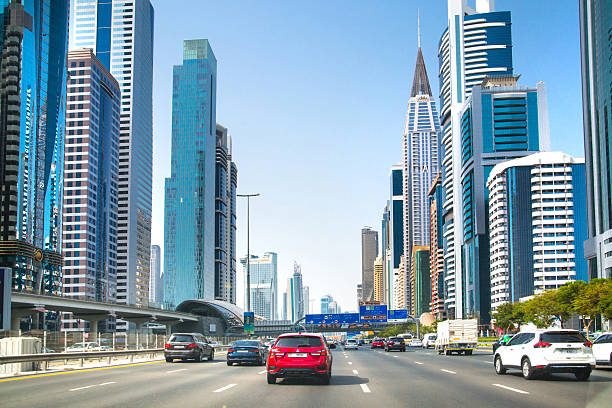
Investing can seem hard. Many people think it’s only for rich experts. But that’s not true. Anyone can invest. You just need to understand some simple ideas. It helps you make money over the years. We will explain how in simple words. What is Investing? What is investing? Investing means putting your money into something. You hope it grows over time.You care for it. Over time, it grows into a big tree.Your money is the seed. The “fruit” is the money you earn later. There are many ways to invest. You can buy parts of a company (stocks). You can lend money to a government (bonds). Or you can buy property. Provenza is about property investment. Why Invest in Property? Property is land or buildings. People often see it as a good investment. Why? It can grow in value: Over time, land and buildings often become more expensive. This is called “appreciation.” You can earn rent: If you own property, you can rent it out. People pay you to live or work there. This is like getting a regular income. It feels solid: Property is something real. You can see it. This makes so many people feel secure. But buying property can be costly. It often needs a lot of money upfront. This is where Provenza’s payment plan comes in. The Challenge of Big Payments Most people don’t have all that money saved up. They need a way to pay for it over time. This is a common problem. It stops many people from investing in property. Traditional ways often ask for a huge down payment. Then, the rest is due quickly.It can put a pressure on your finances. This is especially true in fast growing markets where property prices are continuously climbing. It bridges the gap between aspiring investors and valuable assets. Provenza’s Solution: A Smart Payment Plan Provenza understands this problem. They created a special payment plan. It spreads out the payments. This takes away a lot of financial pressure. Let’s look at how their payment plan works. It usually has two main parts: Payments during construction: You pay a part of the money while the building is being built. Payments after handover: You pay the rest of the money after you get the keys to your property. This is different from paying everything upfront. It breaks down a big cost into smaller, easier pieces. Breaking Down Provenza’s Payment Plan (Examples) Provenza often offers different options. These options are designed for different people. Here are a few common types: The “60/40” Plan: You pay 20% when you book the property. This is your initial commitment. Then, you pay 40% more during the time the building is under construction. For example, you pay a bit when the foundation is done. You pay more when the walls go up. Finally, you pay the last 40% when the property is ready and given to you (handover). The “Post-Handover” Plan (like 70/30): You pay 20% at booking. You pay 40% during construction. You pay 10% when you get the property. The remaining 30% is paid after you get the property. This is a very important part. How the Payment Plan Helps Long-Term Gains Provenza’s payment plan is not just about making payments easy. It actually helps you make more money in the long run. Here’s how: Reduced Upfront Financial Pressure: You don’t need all the money at once. This means you can invest even if you don’t have huge savings ready. It frees up your other money. You can use your savings for other things. This makes property investment open to more people. Leverage and Capital Appreciation: When you buy property this way, you are using “leverage.” You are controlling a large asset (the property). As the building is constructed, its value might go up. This is called “capital appreciation”. When you finally take full ownership, you might have already gained value. Potential for Rental Income (Especially with Post-Handover): This is a HUGE benefit of the post-handover plan. you can rent it out. The rent you get can help you pay the remaining monthly installments. Think about it: Your tenant is helping you pay for your investment! This means your own cash outflow is very low. This turns your investment into a self-paying asset. This is a dream for many investors. Flexibility and Better Cash Flow Management: The spread-out payments allow you to manage your money better. You can plan your budget. You can save money for those payments. This avoids sudden financial shocks. Risk Mitigation during Construction: With construction-linked payments. You have more control. It reduces the risk of the developer not finishing the project. Early Entry into a Growing Market: Provenza often builds in areas that are growing fast. These are places where property values are likely to increase. By buying “off-plan” (before it’s fully built), you get in early. You buy at today’s price. By the time the property is ready. This can push up your property of value even more. Who Benefits Most from Provenza’s Plan? Provenza’s payment plan is great for: First-time investors: It lowers the barrier. It makes property investment less scary. Salaried individuals: People with a stable monthly income can manage the installment payments. Investors seeking passive income: The post handover plan for those who want to earn rent without a big initial financial strain. Important Things to Remember While Provenza’s plan is good always remember to: Do your research: Determine the property. Determine the area. Appreciate the developer’s history. Read the contract carefully: Appreciate all the terms and conditions. Know about your payment schedule. Understand the market: Property values go up and down. Investing is a long term game. And be a patient. Conclusion Provenza’s payment plan makes this journey much simpler. It reduces big upfront costs. It spreads out payments. You can use potential rental income to pay off your investment. This thinking approach supports long term gains.
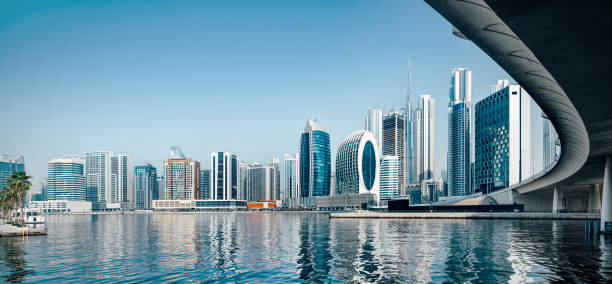
Dubai is a memorable city. Many people want to own a home here. But, buying a property can be expensive. It often needs a big down payment. This can be a challenge for many, especially expats. This is where rent to own models come in. They provide a smart way to get on the property ladder. What is Rent-to-Own? Rent to own is an easy idea. It is like renting a home with a special. This option lets you buy the home later. You act as a tenant first. You pay monthly rent. A part of this rent goes towards your future down payment. This makes it easier to save up. Think of it as a mix of renting and buying. You get to live in the home. You can see if you like the area and the property. At the same time, you are building equity. This is a big advantage. How Does it Work in Dubai? The rent-to-own process in Dubai is peacefully structured. Here is this a general idea of how it works: Agreement:This contract sets out the terms. It includes the rental period. It also states the future purchase price. Initial Deposit: You usually pay a small initial deposit. This is much lower than a traditional down payment. It can be around 5% to 10% of the property’s value. Sometimes, there are even options with no down payment. Monthly Payments: You pay monthly rent. A portion of this rent is saved. This saved amount goes towards your down payment. This means your rent is working for you. It’s helping you buy the home. Rental Period: The rental period can vary. It’s usually from 1 to 5 years. During this time, you live in the property. You get to experience living there. Purchase Option: At the end of the rental period, you have a choice. You can decide to buy the property. The price is usually fixed at the start. This protects you from price increases. If you decide not to buy, you can usually walk away. However, you might lose the portion of rent that was set aside for the down payment. It’s important to check your contract for this. Why is Rent-to-Own Smart in Dubai? There are many reasons why rent-to-own is a good choice in Dubai: Lower Upfront Costs: This is a major benefit. Traditional mortgages need a large down payment. This can be 20% or even 25%. Rent-to-own needs a much smaller initial payment. This makes homeownership more reachable. Build Equity While Renting: You are not just paying rent. A part of your payment is building equity. This means you are slowly buying a part of the home. This is much better than just paying rent with no return. Price Lock: The purchase price is usually agreed upon early on. This is a big plus in a market like Dubai. Property prices can go up. With a rent-to-own agreement, you lock in the price. This means you won’t pay more even if the market goes up. Time to Improve Finances: Rent-to-own gives you time. You can use this time to improve your credit score. You can also save more money. This helps you get a better mortgage later. “Try Before You Buy”: You get to occupy the property. You can see if it is the right fit for you. This helps you make an illiterate decision. You would not be stuck with a property you do not like. Flexibility for Expats: Many expats find it hard to get a large loan. Renting to own provides an easier path. It helps them transition from least to owning in Dubai. It needs less strict requirements than a full mortgage. Things to Consider While rent-to-own is great, it’s good to know all sides: Higher Rent: You might pay a bit more in rent. This is because a portion of it goes towards your future down payment. But this extra cost is an investment in your future house. Commitment: Rent to own is a long term plan. It usually lasts a few years. You need to be sure about your plans. Breaking the agreement early can mean penalties. Non-Refundable Payments: If you had to decide not to buy you might lose the money paid towards the down payment. Property Options:This might limit your choices. But, more developers are offering these schemes now. Legal Aspects and Registration In Dubai, rent-to-own contracts are legal. They are recognized by the Dubai Land Department (DLD). This gives security to both parties. The contract will clearly state everyone’s rights and duties. It’s vital to get all the details in writing. Also, ensure the agreement is registered with the DLD. This makes it official and protects your interests. Finding Rent-to-Own Properties in Dubai Many big developers in Dubai offer rent-to-own options. You can find properties in popular areas like: Jumeirah Village Circle JVC Business Bay Al Furjan Dubai South Marsa dubai Umm al tarif It is a good idea to work with real agents. Look for agents who know the rent to own the market well. Can also guide you through the process. Ask them important questions. What is the exact purchase price? Can it be changed later? How much of my rent goes to the purchase? The Future of Homeownership in Dubai The real market in Dubai is always changing. Renting to own models is becoming more popular. They provide a great solution for those who want to own a home.This makes property ownership more accessible. It is a sign of an evolving market. Conclusion If you have a dream of owning a home in Dubai, don’t give up. Visit rent to own options. They must be your perfect path to becoming a proud homeowner in this stunning city. It is a smart financial decision.Everytime do your homework. Read all documents peacefully. Get executive advice if needed. This will ensure a smooth tour to your new home.

The real property market is always changing. Buyers see more than just four walls and a roof. They desire a lifestyle. They want convenience. This is where value added amenities come in. For off plan properties these amenities are crucial. Let’s visit how these features boost appeal. What are Off-Plan Properties? First, let’s define off-plan. Off-plan properties are homes bought before they are built. You buy based on plans and renderings. This means you don’t see the finished product. This can be risky for some buyers. So, developers need to offer something extra. They need to create a vision. Amenities help paint this picture. The Power of Vision You wanted to know its features. You’d want a detailed brochure. Off-plan properties are similar. Buyers need to envision their future. High-quality amenities help them do this. A swimming pool is not just a pool. It is a place for relaxation. A gym is not just equipment. It is a healthy lifestyle. These visions are powerful selling tools. Why Amenities Matter for Off-Plan For completed properties, you can see and touch everything. For off-plan, you rely on trust. You rely on the developer’s promise. Amenities build this trust. They show commitment to quality. They show foresight. They suggest a premium living experience. This is especially important in competitive markets. Types of Value-Added Amenities Amenities are diverse. They cater to different needs. Here are some unique categories: Lifestyle Amenities: They should focus on well being and leisure. Think about spas and yoga studios. These promote an active life. Convenience Amenities: These make life very easy. Concierge services technology and package lockers fall into this group. They save time. Social Amenities: Rooftop lounges and communal gardens or BBQ place and co-working spaces foster interaction. Family-Friendly Amenities: Families with kids can use these. Playgrounds or the kids clubs and dedicated playrooms and family friendly pools are examples. They provide peace of mind for parents. Pet-Friendly Amenities: With more pet owners these are attaining popularity. Pet washing stations or designated pet relief areas and even pet daycare can be big draws. Sustainability Amenities: Eco conscious buyers value these. Solar panels and EV charging stations or green spaces and rainwater harvesting systems show a commitment to the environment. Technological Amenities: Integrated smart home systems and high speed internet and keyless entry are looked for. Boosting Investment Potential Amenities aren’t just about lifestyle. They also boost investment potential. A property with excellent amenities can command higher rental yields. It can also appreciate faster. Buyers see the long-term value. They understand the appeal to future tenants or buyers. This makes the off-plan purchase more attractive. It de-risks the investment somewhat. For off plan buy where the property is bought before completion. The promise of high amenities helps to de-risk the investment. It offers a tangible value proposition that reassures purchase about the property’s future marketability and desirability even before it is built. In essence, amenities transform a property from an easy living space into a more robust and appealing investment that provides both immediate rental advantages and long term big growth potential.their impact extends far beyond. Catering to Specific Demographics Developers need to know their target market. Are they young professionals? Families? Retirees? The amenities provided should align with their needs. For new professionals or co-working spaces and high speed internet are key. For families we have playgrounds and secure environments are vital. Retirees must prefer quiet lounges and easy medical facilities. Tailoring amenities is critical for success. A one size fits all approach rarely works. The Role of Design and Quality It’s not just about what amenities are offered. It’s also about how they are designed. High-quality materials are important. Expert craftsmanship is expected. An aesthetically pleasing design adds to the appeal. A poorly maintained amenity can actually deter buyers. So, developers must ensure long-term quality. They must show a commitment to ongoing maintenance. This builds trust in the overall project. Creating a Unique Selling Proposition (USP) Amenities can provide this. Imagine a development with a unique sky bridge. Or a property with a private art gallery. These distinctive features stand out. They make the property memorable. They give buyers a reason to choose one over another. This is especially true for off-plan. When everything else is just plans, a unique amenity can be the tie-breaker. Addressing Buyer Concerns Buying off-plan can be daunting. Buyers worry about delays. They worry about the finished quality. Visible, well-planned amenities can ease these fears. They show tangible value. They demonstrate the developer’s vision. They offer a concrete promise of future lifestyle. This transparency is vital. It builds confidence in the project. The Financial Aspect Of course, amenities come at a cost. Developers must balance this. The cost of amenities is factored into the property price. Buyers are generally willing to pay more for added value. But there’s a limit. Creators need to be strategic. They could select amenities that provide the best return on investment. They should prioritize features that repeat most with their target buyers. Marketing and Visualisation Successful marketing is key. creators use sophisticated tools. 3D renderings or virtual tours and augmented reality are common. These tools bring the amenities to life. They allow buyers to “experience” the facilities before they exist. High-quality visuals are essential. They help buyers truly envision their future home. They make the off-plan purchase feel more real. Conclusion Value-added amenities are no longer optional. They are a core component of off-plan property appeal. They can change a blueprint into a dream home. They provide lifestyle or convenience and community. For creators they are powerful marketing tools. For purchase they represent living and investment potential. By appreciating and strategically implementing these amenities or developers can significantly boost the appeal of their off plan factor. This leads to faster sales and happier customers. The future of real estate is about selling a complete experience, not just a property. And amenities are at the heart of that experience.









